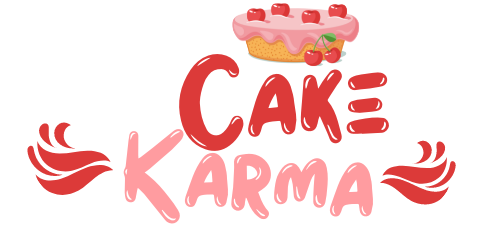Are you passionate about creating beautiful and delicious works of art? Have you ever wondered, “How do I become a cake decorator?” If so, you’re in the right place. The world of cake decorating offers a thrilling combination of creativity and culinary skill, making it an attractive career choice for many individuals. From designing intricate wedding cakes to crafting whimsical birthday confections, there’s no limit to the artistic possibilities within this field.
As you embark on this journey of exploration, it’s important to understand the role of a cake decorator and what it takes to succeed in this competitive industry. In addition to honing your baking and design skills, you’ll need to develop essential traits such as attention to detail, creativity, and precision.
This introductory section will delve into the necessary education and training requirements, as well as practical experience opportunities that will help you build a solid foundation for your future career as a cake decorator.
In the following paragraphs, we will discuss various pathways to becoming a skilled cake decorator – from formal education programs to hands-on learning opportunities through internships or apprenticeships. Additionally, we’ll explore the crucial role of networking and professional development in connecting with industry professionals and seeking opportunities for growth.
Whether you dream of working in a bakery or owning your own cake decorating business, this article will guide you through the steps needed to turn your passion into a successful career. Let’s dive into the exciting world of cake decorating.
Understanding the Role of a Cake Decorator
Becoming a cake decorator requires more than just a passion for baking and design. It takes dedication, creativity, attention to detail, and a willingness to continuously learn and improve. As a cake decorator, you will be responsible for bringing clients’ visions to life through beautifully crafted and delicious confections. This role requires patience, precision, and the ability to work under pressure, especially when facing tight deadlines for special events such as weddings or birthdays.
In addition to technical skills in baking and decorating, successful cake decorators also possess excellent time management skills and the ability to effectively communicate with clients to understand their specific needs and preferences. Whether you choose to work for a bakery, start your own business, or pursue freelance opportunities, the role of a cake decorator demands a high level of professionalism and the ability to consistently deliver quality products.
To succeed in this field, aspiring cake decorators must also keep up with current trends in baking and design. Staying updated on popular techniques, themes, and flavor profiles can help you stand out in the industry and attract new clients. Embracing creativity while also staying attentive to client requests is key in building a successful career as a cake decorator.
| Skills Needed | Role Requirements |
|---|---|
| Patience | The role requires working under pressure |
| Creativity | Ability to bring clients’ visions to life |
| Communication | Understanding clients’ specific needs. |
Education and Training Requirements
Becoming a successful cake decorator requires a combination of education, training, and practical experience. Whether you are a beginner or looking to expand your skills, there are various paths you can take to pursue a career in cake decorating. Here are some essential steps to consider in finding the right path to becoming a cake decorator:
1. Culinary School: Attending a reputable culinary school can provide you with the foundational knowledge and skills needed to excel in cake decorating. Look for programs that offer courses specifically focused on pastry arts and cake design.
2. Online Courses and Tutorials: Many professional cake decorators offer online courses and tutorials that cater to individuals who prefer flexible learning schedules. Platforms like Udemy, Craftsy, or YouTube offer a wide range of affordable options for honing your cake decorating skills from the comfort of your own kitchen.
3. Apprenticeships and Internships: Consider seeking out opportunities to apprentice under an experienced cake decorator or intern at a bakery or pastry shop. This hands-on experience can be invaluable in providing real-world insight into the day-to-day responsibilities of a cake decorator.
In addition to formal education and training, it’s important to stay updated on current trends and techniques within the industry. Networking with other professionals, attending workshops or seminars, and participating in industry events can also help you stay informed about new developments in the field. Ultimately, finding the right path to becoming a cake decorator involves dedication, passion, and a commitment to continuous learning and improvement.
Building a Strong Foundation
To become a proficient cake decorator, it is crucial to develop a deep understanding of baking techniques, flavor profiles, and food safety practices. This knowledge will not only allow you to create delicious and visually appealing cakes but also ensure that your products are safe for consumption. Many aspiring cake decorators choose to pursue formal education in culinary arts or pastry making to gain the necessary expertise in this area.
In addition to honing your baking skills, mastering the art of cake design is equally important. This involves learning about different types of frosting, decorating tools, and techniques for creating intricate designs. Whether it’s mastering buttercream flowers or creating fondant sculptures, a solid grasp of cake design principles will set you apart as a skilled professional in the industry.
According to industry experts, gaining hands-on experience through internships or apprenticeships is invaluable for individuals looking to build a strong foundation in baking and cake design. Working alongside experienced professionals allows aspiring cake decorators to learn from real-world scenarios and refine their skills in a practical setting. Furthermore, seeking out mentorship opportunities can provide valuable guidance as you navigate your journey towards becoming a proficient cake decorator.
| Key Components | Importance |
|---|---|
| Baking Techniques | Creating delicious and safe cakes |
| Cake Design Principles | Setting apart as a skilled professional |
| Hands-on Experience | Gaining practical knowledge from industry professionals |
Gaining Practical Experience
The Value of Internships
Internships allow aspiring cake decorators to work alongside experienced professionals, observe their techniques, and gain practical knowledge in a professional kitchen or bakery setting. These opportunities also provide the chance to learn about the business side of cake decorating, such as client interactions, pricing, and time management. Many culinary schools offer internship programs as part of their curriculum, providing students with connections to potential employers and industry networks.
Apprenticeships: Learning From the Masters
In addition to internships, seeking apprenticeships with established cake decorators can be an excellent way to learn from the best in the field. Apprentices often have the opportunity to work closely with a mentor, receiving personalized instruction and guidance as they develop their skills. This hands-on approach allows aspiring cake decorators to gain insights that may not be taught in traditional classroom settings, such as decorating techniques, time-saving tips, and industry secrets.
Hands-on Learning Opportunities
For those who prefer a more informal approach to gaining practical experience in cake decorating, seeking out hands-on learning opportunities through workshops, seminars, or community classes can be highly beneficial. These experiences can provide a wide range of techniques and methods that may not be covered in formal education settings. Additionally, these opportunities allow individuals to network with other aspiring decorators and industry professionals while refining their skills in a supportive environment.
By actively seeking out internships, apprenticeships, and hands-on learning opportunities within the cake decorating industry, individuals can enhance their abilities while building valuable connections and experiences that will help pave the way for a successful career as a cake decorator.
Developing Essential Skills
When it comes to becoming a successful cake decorator, there are certain essential skills that are crucial for excelling in this field. Attention to detail, creativity, and precision are just a few of the key skills that can set you apart as a talented cake decorator.
Attention to detail is perhaps one of the most important skills for a cake decorator. Every little design element, from intricate piping work to delicate fondant accents, requires a keen eye for detail. Ensuring that every aspect of the cake is perfect and meticulously executed is essential in creating stunning and professional-looking cakes.
Creativity is another vital skill for a cake decorator. From coming up with new and unique design ideas to customizing cakes to suit various themes or occasions, creativity plays a significant role in setting you apart as an exceptional cake decorator. Thinking outside the box and constantly innovating will help you stand out in this competitive industry.
Precision is also essential when it comes to cake decorating. Whether it’s measuring ingredients accurately for baking or executing intricate designs with precision, having steady hands and attention to precise measurements are crucial for creating flawless cakes.
To excel as a cake decorator, it’s important to continually hone these skills through practice and by seeking out learning opportunities such as workshops or classes focused on developing these specific abilities. Additionally, gaining experience through internships or apprenticeships can provide valuable hands-on experience that will help you refine your attention to detail, creativity, and precision.
- Take cake decorating classes or workshops
- Practice regularly and experiment with new techniques
- Pursue internships or apprenticeships with established cake decorators
- Seek constructive feedback from experienced professionals
Networking and Professional Development
Connecting With Industry Professionals
One of the most important steps in becoming a successful cake decorator is networking with industry professionals. This can be done through attending industry events, joining professional associations, and connecting with experienced cake decorators through social media or online forums. By building relationships with professionals in the field, you can gain valuable insights, advice, and potential job opportunities.
Seeking Opportunities for Growth
In addition to networking, seeking opportunities for growth is essential for advancing your career as a cake decorator. This could involve participating in workshops or master classes led by renowned cake decorators, taking on challenging projects that push your creative boundaries, or seeking out mentorship from seasoned professionals. By continually seeking ways to expand your skills and knowledge, you can position yourself for long-term success in the industry.
Utilizing Social Media and Online Platforms
In today’s digital age, leveraging social media and online platforms is crucial for connecting with industry professionals and showcasing your work as a cake decorator. Creating an online portfolio of your best creations, engaging with other decorators and potential clients on social media, and actively participating in relevant online communities can help you establish a strong professional presence and attract new opportunities for growth.
By proactively networking with industry professionals, seeking opportunities for growth, and utilizing social media effectively, aspiring cake decorators can lay a solid foundation for their careers while positioning themselves for success in the competitive world of cake decorating.
Starting Your Own Cake Decorating Business
If you’ve always had a passion for cake decorating and dream of starting your own business, there are several key tips to keep in mind as you embark on this entrepreneurial journey. One of the first steps in starting your own cake decorating business is to create a solid business plan.
This includes identifying your target market, determining your niche within the industry, and setting clear goals for your business. By having a well-thought-out plan, you can establish a strong foundation for success and guide your decision-making as you move forward.
In addition to creating a business plan, it’s important to understand the legal and financial aspects of entrepreneurship. This may involve obtaining any necessary licenses or permits, registering your business, and setting up financial systems for bookkeeping and taxes. Seeking guidance from legal and financial professionals can help ensure that you are making informed decisions and operating within the parameters of the law.
Another crucial aspect of starting your own cake decorating business is developing a strong brand identity and marketing strategy. This involves creating a compelling brand that reflects your unique style and offerings, as well as determining how to effectively reach and attract potential customers. Utilizing social media, developing a professional website, and participating in local events or markets can all be valuable tools for promoting your business and connecting with clients.
Ultimately, launching a successful cake decorating business requires dedication, creativity, and perseverance. Building a loyal customer base, honing your skills as a decorator, and continuously seeking opportunities for growth are essential components of this entrepreneurial endeavor. By staying focused on both the artistic and business aspects of cake decorating, you can work towards establishing a thriving enterprise in this competitive industry.
Conclusion
In conclusion, becoming a skilled and successful cake decorator requires dedication, passion, and a commitment to continuous learning and improvement. Aspiring cake decorators should embrace the journey of honing their craft, understanding that it is a process that involves both education and practical experience.
By focusing on building a strong foundation in baking and cake design, developing essential skills such as attention to detail and creativity, and seeking opportunities for professional growth through networking and industry connections, individuals can pave the way for a rewarding career in cake decorating.
Gaining practical experience through internships, apprenticeships, or hands-on learning opportunities is crucial for aspiring cake decorators. These experiences provide invaluable insights into the day-to-day responsibilities of the profession and allow individuals to refine their skills under the guidance of experienced professionals. It also provides an opportunity to showcase their talents and build a portfolio that will be essential when pursuing employment or starting their own cake decorating business.
Ultimately, embracing the journey to becoming a skilled and successful cake decorator requires perseverance and a willingness to continuously learn and adapt to new trends in the industry. By staying informed about current techniques, tools, and styles within the world of cake decorating, individuals can position themselves for success and stand out in this competitive field. With determination and dedication, anyone with a passion for baking and design can carve out a fulfilling career as a cake decorator.
If you’re still wondering “how do I become a cake decorator? “, remember that it all starts with passion, commitment, education, training, practical experience – but most importantly – embracing the journey towards your dream job.
Frequently Asked Questions
What Qualifications Do You Need to Become a Cake Decorator?
To become a professional cake decorator, having a high school diploma or equivalent is typically the minimum educational requirement. Many cake decorators also pursue formal training through culinary arts programs or specialized cake decorating courses to gain skills and knowledge in the field.
How Do You Learn to Be a Cake Decorator?
There are various ways to learn cake decorating, including enrolling in culinary arts programs, attending specialized courses or workshops, and apprenticing under experienced cake decorators. Additionally, self-study through books, online tutorials, and practice can also help develop the necessary skills to become a proficient cake decorator.
How Long Does It Take to Become a Professional Cake Decorator?
The time it takes to become a professional cake decorator can vary depending on the individual’s preferred learning path and dedication to honing their skills. Some may complete formal training within one to two years, while others may take longer if they choose to pursue an apprenticeship or learn through self-study.
Ultimately, becoming a skilled and experienced cake decorator is an ongoing process that requires continuous practice and learning.

Welcome to our cake decorating blog! My name is Destiny Flores, and I am the proud owner of a cake decorating business named Cake Karma. Our mission is to provide delicious, beautiful cakes for all occasions. We specialize in creating custom cakes that are tailored specifically to each customer’s individual needs and tastes.





